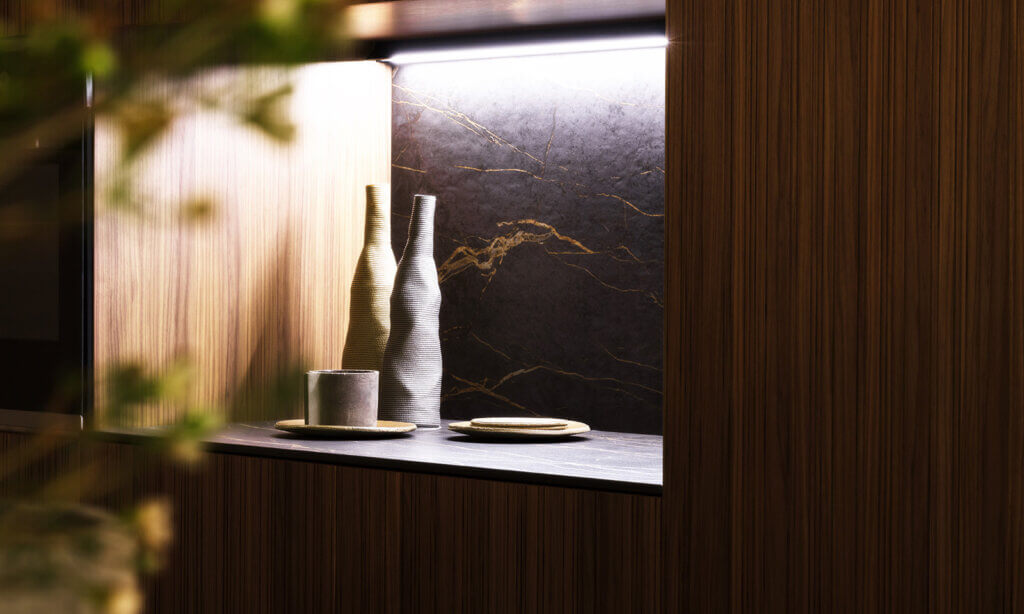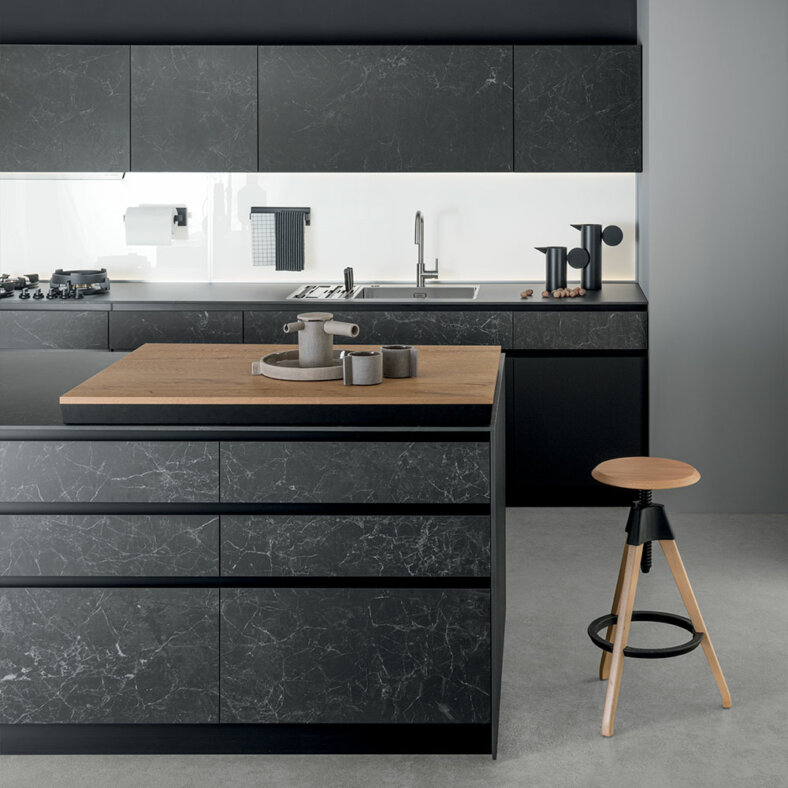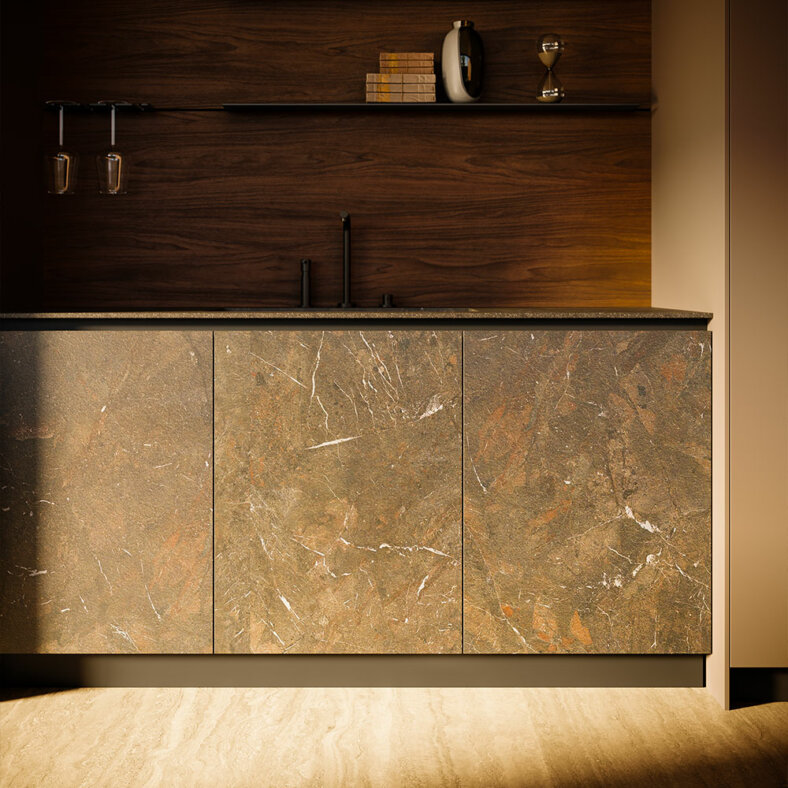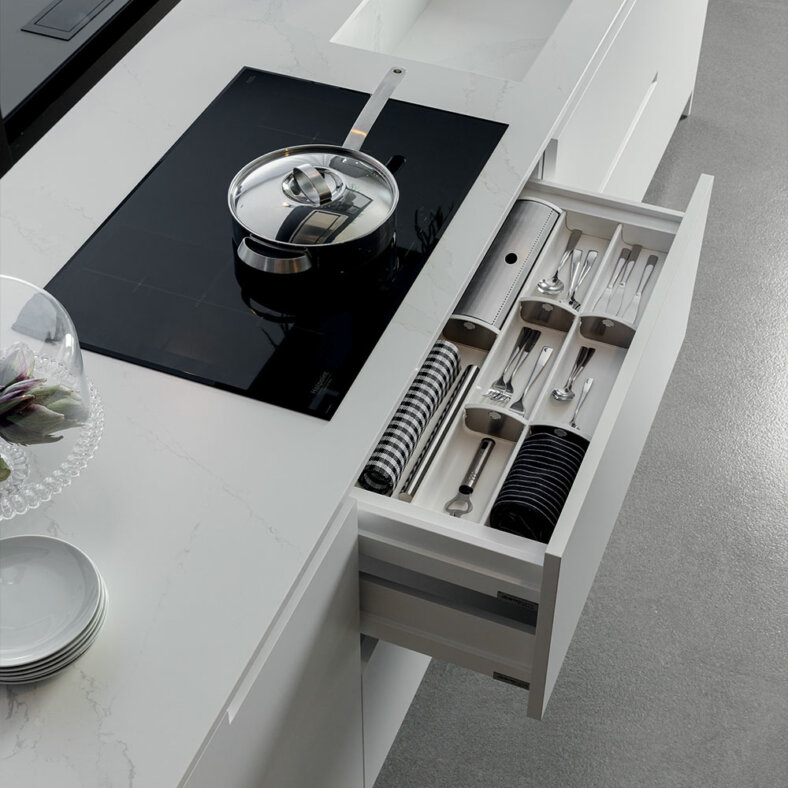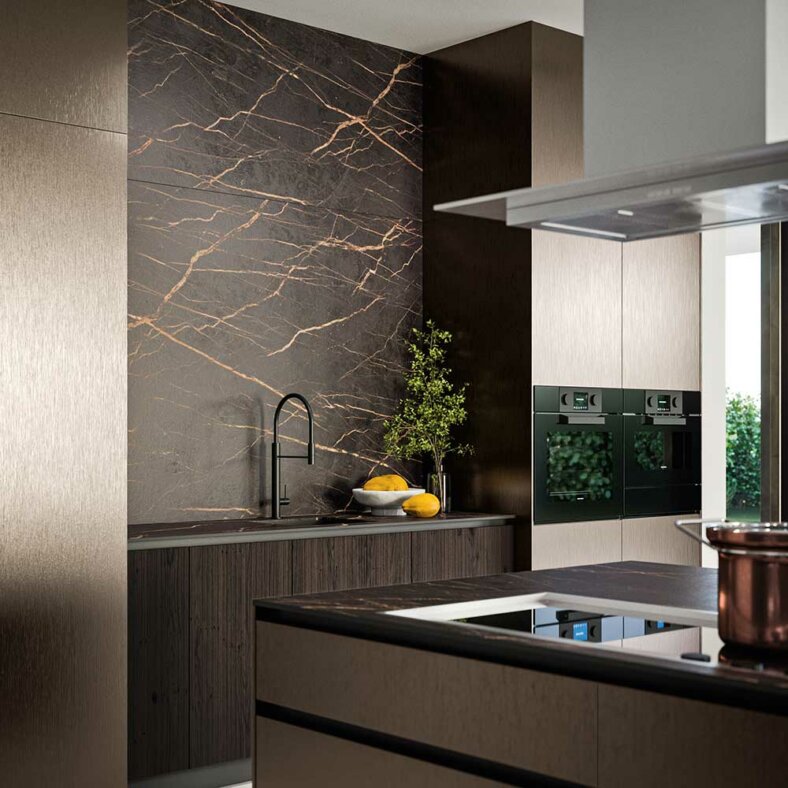Suggestions and guides
Abitum
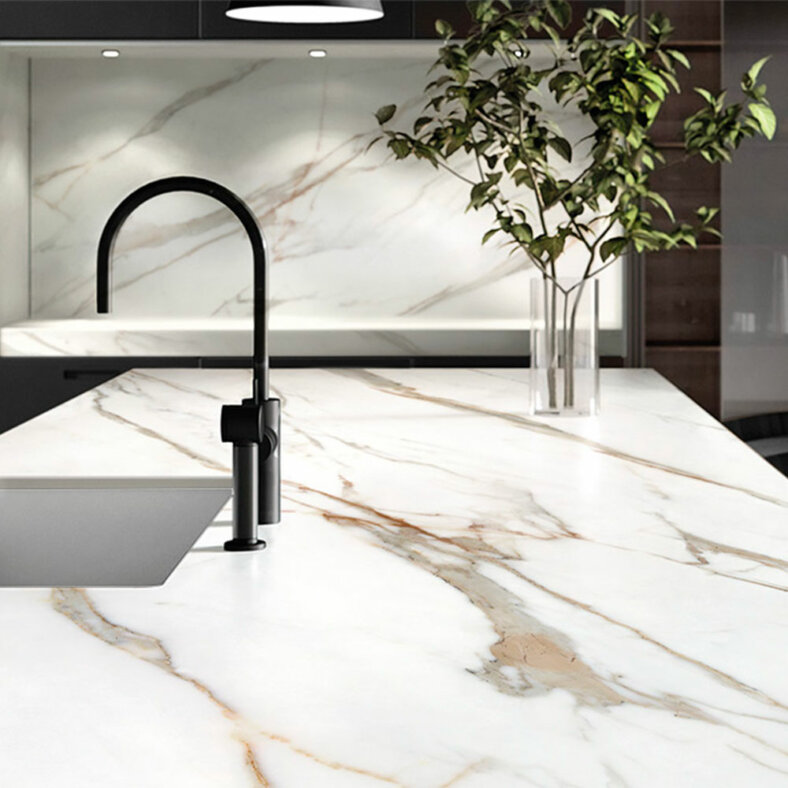
Sophisticated and personalised design
It allows for the choice of matching worktops and snack counters for a sophisticated and personalised look.
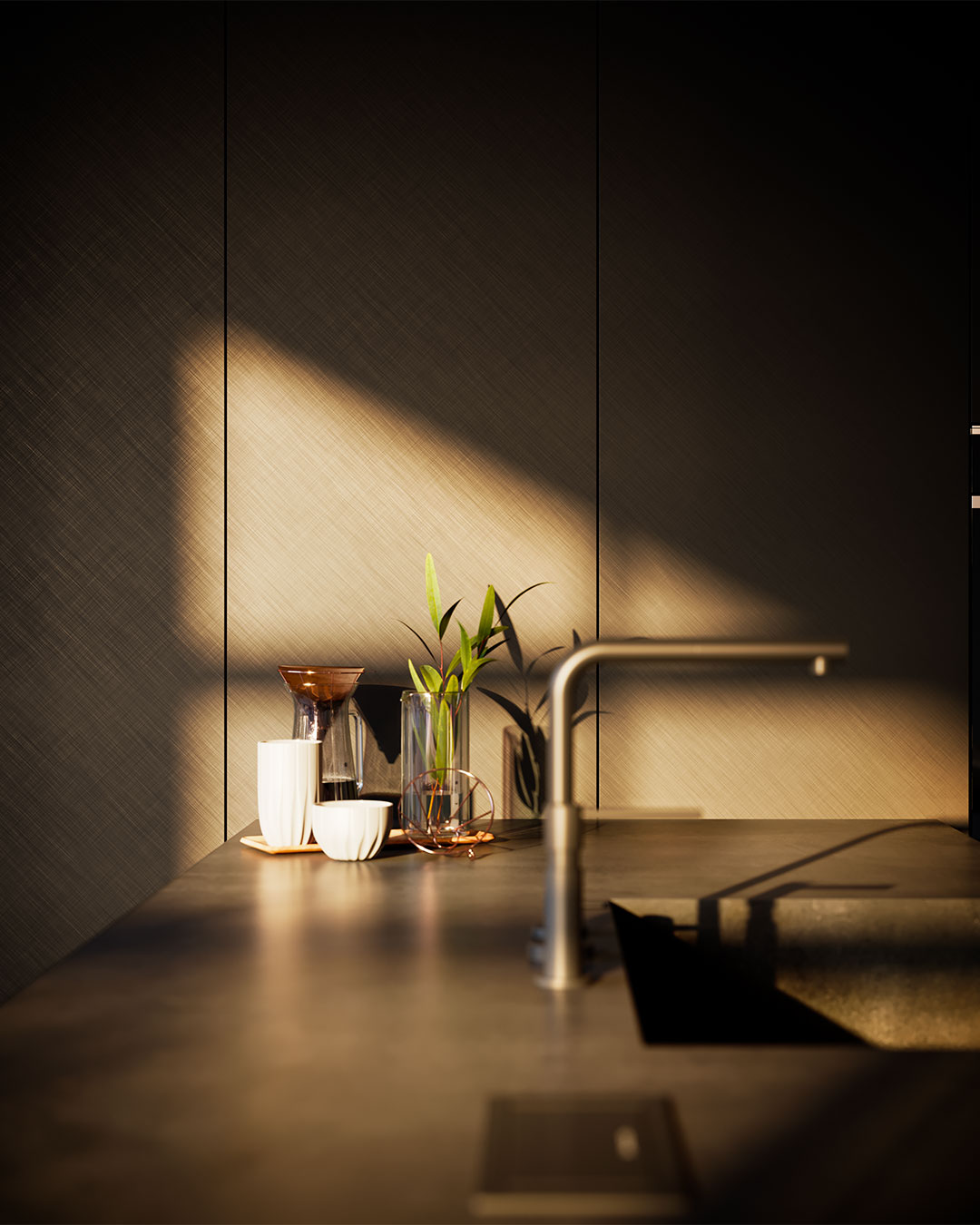
What is an Abitum work top made of?
Abitum worktops are in ceramic, made from natural raw materials compacted by a special process of sintering that takes place at more than 1200°C. This process uses innovative manufacturing technologies that respect the highest environmental standards, systems to reduce the emission of odours into the air and a great deal of attention toward recycling and reusing materials: 100% of the water required and 91% of leftover raw materials.
Characteristics of Abitum
Worktops in Abitum, with its slightly three-dimensional surface, boasts numerous characteristics that make them extremely practical. They are easy to clean, resistant to scratches, excluding those caused by ceramic knives, to stains, thermal shock, humidity, detergents and heat, to the point they can directly support hot pans without a trivet. Their compact surface does not absorb food residues or liquids and remains unaltered over time in its appearance and characteristics.
Abitum work tops
Sheets of Abitum ceramic are used in the kitchen to create worktops and can also be used for tables to create a coordinated look. The sheets are 12 mm thick large format, 1,400 x 3,200 mm, and available in a wide range of finishes, including imitations of metals, marbles and concretes.
How to clean a work top in Abitum
All that is required to clean a worktop in Abitum is a microfibre cloth or soft sponge and hot water, and eventually a neutral detergent whose use should be followed by a rinse to avoid the formation of halos or surface patinas. If cleaned regularly and when residues that can stain the surface are removed rapidly, no special cleaning will be required.
Avoid to:
- leave stains of liquids such as coffee, red wine or tea to dry
- use of abrasive detergents or sponges
- drag plates, pots, knives or small appliances across the surface
- cut food directly on the worktop
- use products containing waxes that could lead to the formation of opaque patinas
